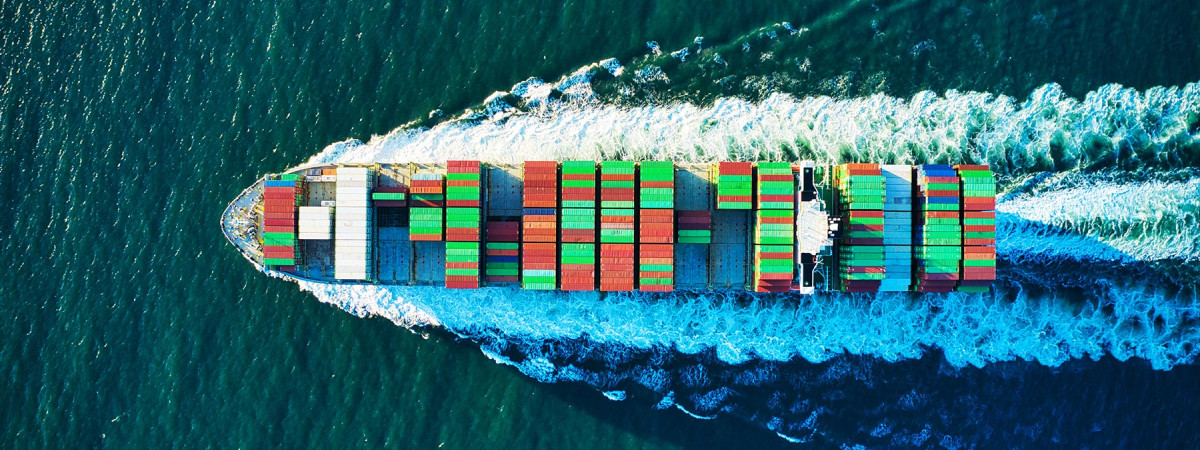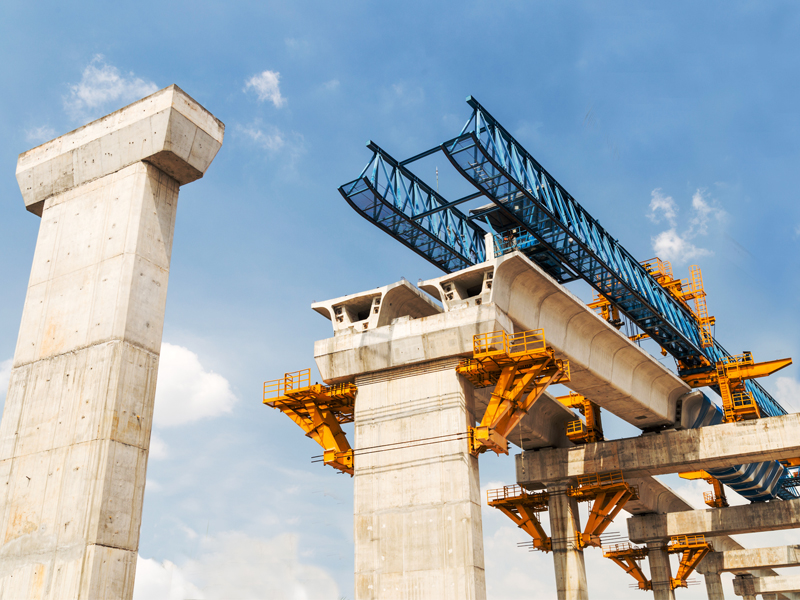
Authors
-
Cameron Steagall
Former Manager, Collaboration, BSR
-
Andrea Serra
Former Associate Director, Sustainability Management, BSR
Key Points
- Decarbonization solutions demand urgent cooperation across the value chain to predict and mitigate complex challenges.
- Innovative technologies that are too expensive for most businesses are attainable through co-investments with other stakeholders.
- Testing pilot projects today is the only way for solutions to undergo multiple rounds of iterations to reach optimization to reach market scale.
Over the past year, global shipping giant Maersk has ordered 13 green methanol-fueled ships and shortened its decarbonization commitment by a decade to 2040, all without a guaranteed global supply of methanol to even fuel these ships. In hopes of getting these ships on the water and fueled by methanol in the next few years, Maersk is relying on partnerships and collaborations instead of waiting for methanol to become available.
In 2019, freight emissions accounted for 8 percent of global greenhouse gas emissions, and even more if warehouses and ports are included. Now, cargo demand is expected to double by 2050, and a net-zero scenario in the same timeframe requires a 20 percent reduction in emissions by 2030.
Demand signals, policy shifts, and infrastructure developments necessary for a zero-emission future will require multiple stakeholders to align to influence and fund innovative developments. That will be nearly impossible without concrete action plans and collaboration around, for example, the deployment and testing of alternative fuels.
Fortunately, some businesses, like Maersk, have the resources to lead the way. However, until there is collaboration and co-investment in pilot projects across the entire freight industry, low- and zero-carbon freight solutions will remain undeveloped at scale. Collaboration experts behind the Sustainable Freight Buyers Alliance (SFBA), a collective action initiative, identified three pillars for businesses of all sizes to utilize when pursuing low- and zero-carbon freight solutions: including multi-stakeholder input, seeking co-investments, and deploying pilot projects.
Spark Multi-Stakeholder Input
One of the most important, and arguably least integrated, aspects of scaling any new technology is ensuring the right voices are at the table. It is difficult to successfully launch and grow innovations without stakeholders’ input across the value chain. The different perspectives, expertise, and experiences that players bring to the table are key to unlocking freight decarbonization.
Developing new fuels, like the currently nascent green methanol and green ammonia for maritime shipping, requires open collaboration to understand the complex challenges surrounding technologies, health and safety aspects, supply, bunkering, infrastructure, and shipbuilding.
For instance, Maersk has ordered numerous new methanol-fueled ships in pursuit of their decarbonization goals. However, the shipping giant may receive the ships before there’s enough supply. Through a multi-stakeholder partnership, Maersk hopes to produce enough e-methanol to fuel at least 12 of their 13 methanol ships by the end of 2025. If companies as large as Maersk are dependent on partnerships and stakeholders to drive decarbonization, nearly every other company will have to come together to ensure the 2050 Net Zero target is within reach.
Co-invest in Climate Solutions
Many climate solutions may work for single businesses, but the sign of a successful project is replicability and widespread support from multiple stakeholders across the value chain. When multilateral stakeholders align to shape solutions in a way that is implementable for numerous businesses while also dispersing costs that allow for additional support, decarbonization efforts are attainable. Often, projects are too costly for a single company to invest in or hedge bets on the first iteration of new technologies, which is why joining forces to offset costs is the most accessible way to bring low- and zero-carbon fuels to market.
Brand reputation, legal red tape, trust, and skepticism from internal teams also hinder co-investment for many businesses. When companies convene and speak openly about challenges and share best practices, it helps prepare representatives to approach internal teams (e.g., finance, C-suite) for buy-in and expedite processes such as contracting. Co-investment is necessary to rapidly scale climate solutions but will require cooperation and trust among partners.
Establish Pilot Projects
There is no silver bullet for decarbonizing freight or transportation overnight. Every emerging fossil-fuel alternative must undergo multiple rounds of innovations, improving over years, if not decades. We’ve seen it for far too long in the freight space: companies are reluctant to be the first to invest in unproven fuels. However, it is up to companies to explore new options like green hydrogen and ammonia.
Namibia recently selected five pilot projects in rail, trucking, and shipping to receive millions for green hydrogen development. Investment firms Carlyle and GIC are collaborating with the green ammonia producer, Eneus, to develop a green ammonia/hydrogen pipeline. Investing early is not only beneficial for decarbonization efforts, but it also helps companies to build a more reputable brand in the eyes of sustainable consumers, drive ESG-minded investments, secure long-term contracts for predictably low supply in the early years, and the overarching greater good of scaling solutions for a cleaner tomorrow.
Collaborate with the Sustainable Freight Buyers Alliance
The Sustainable Freight Buyers Alliance (SFBA), led by Smart Freight Centre (SFC), formally launched in the first half of 2022 with the intention of aggregating freight buyers to co-invest in pilot projects with input and guidance from multilateral stakeholders.
While this is not the first freight collaboration, it is a first-of-its-kind, designed to bring the voices of the full freight ecosystem to the table in a way that encourages peer-to-peer collaboration and information sharing. SFC, BSR, and the World Economic Forum foresaw an opportunity to create a unique initiative using Clean Cargo and GLEC as a launch pad.
SFBA unites all the key players, but it also streamlines processes, data, and project development to expedite the uptake of cleaner fuels and technologies. Through open forum discussions, businesses will build relationships and partnerships, and they will rapidly scale climate solutions that may give us a chance of reaching the SFBA goal of reducing freight emissions by 35 percent by 2030. SFBA recognizes the urgency for freight decarbonization and the need to invest so that solutions are optimized and on the market in time for the 2030 emission reduction and the zero emission 2050 deadlines.
SFBA is hosting an in-person member meeting in September in New York City during Climate Week. Companies interested in bringing freight decarbonization pilot projects to the forefront or co-investing in these solutions can sign up.
Support to develop this blog comes from a multi-year program between BSR and the Swedish International Development Cooperation Agency (SIDA) to promote business-led multi-stakeholder collaboration. We will be sharing further information on best practices for setting up collaborative initiatives and key examples as part of this program.
BSR’s latest sustainability insights and events straight to your inbox.
Topics
Let’s talk about how BSR can help you to transform your business and achieve your sustainability goals.







